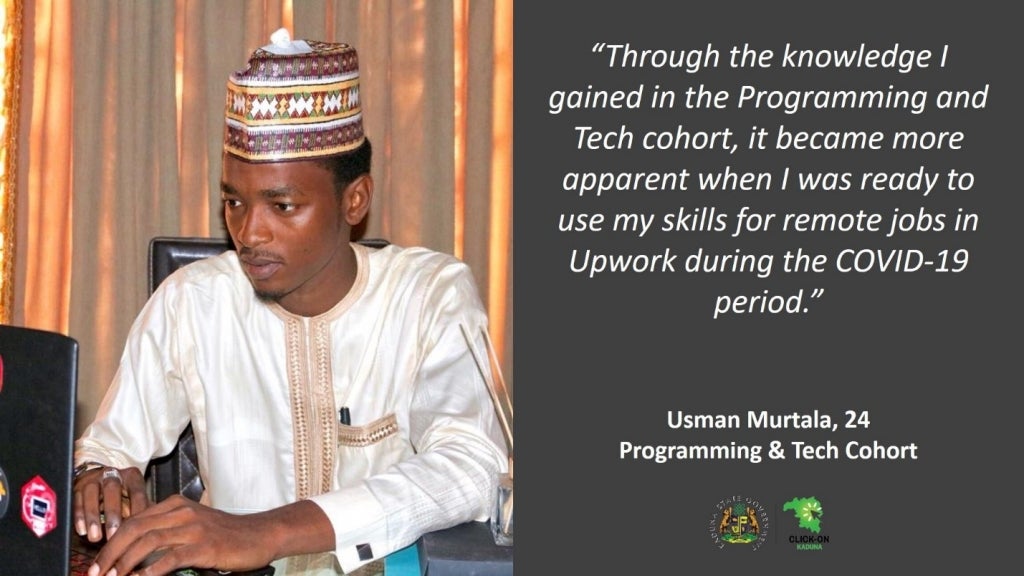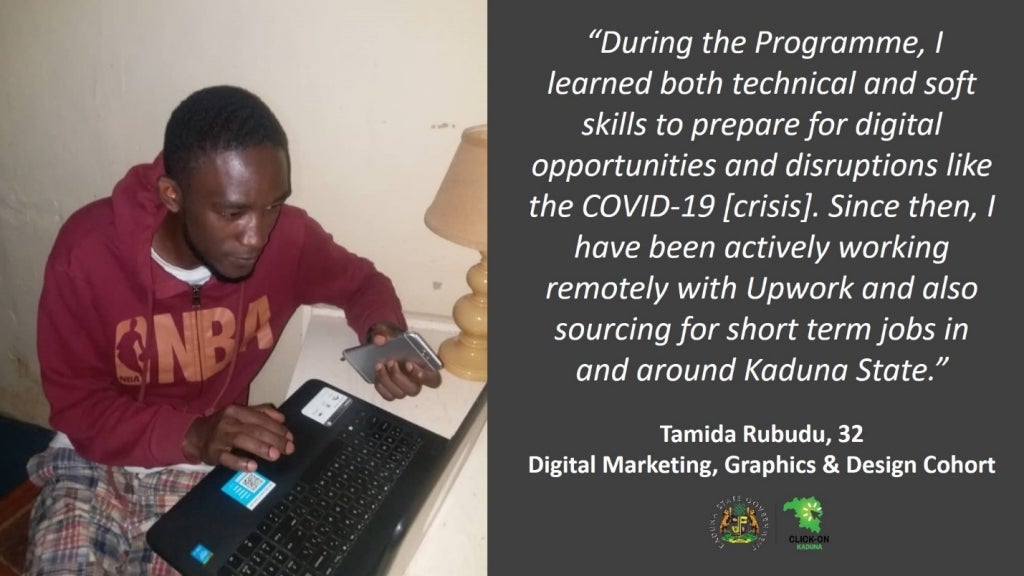
In only a few months, the coronavirus (COVID-19) pandemic has disrupted livelihoods for millions of young people worldwide. The ILO estimates that more than one in six young people have now stopped working due to the pandemic. Education and training opportunities for youth have also been interrupted, creating long-term implications for post-COVID recovery.
As we celebrate World Youth Skills Day, it’s important to highlight the role digital technologies can play to mitigate the effects of the crisis on youth. Digital platforms are enabling students to pursue online learning, entrepreneurs to engage in e-commerce, and workers to earn income through online freelancing and microwork. These remote opportunities are particularly beneficial for young women and other vulnerable youth who have been disproportionately affected by the crisis.
Governments and businesses are now increasing their investments in digital skills development to ensure that youth can leverage online education and employment opportunities. Microsoft has launched a new initiative to help 25 million people worldwide to acquire new skills for a COVID-19 economy. The African Development Bank’s Coding for Employment e-learning platform was launched in 2019 to equip African youth with advanced digital skills. Since the start of the pandemic, the number of users has increased by almost 50%.
To succeed on a large scale, digital skills training programs must collaborate with stakeholders across a variety of sectors. The recent Click-On Kaduna pilot demonstrates how governments can successfully work with private sector partners to empower youth with the skills they need to thrive during and after the COVID-19 pandemic.
Prioritizing digital and socio-emotional skills training

In 2018, the World Bank, the Rockefeller Foundation, and the Kaduna State Government launched the Click-On Kaduna program to help youth affected by conflict to leverage new opportunities in the digital space. The program trained 1,190 youth on how to access remote online work, in partnership with Upwork. The pilot also included a 6-month Digital Skills Development bootcamp which ran from June to December 2019. The intensive course armed 180 youth with skills needed for jobs in two streams: Programming and Technology; and Digital Marketing, Graphics, and Design.
Cross-sector partnerships were critical for the success of the Click-On Kaduna digital skills bootcamp. The team worked with Upwork, IBM Digital Nation Africa (IBM-DNA), and other global tech firms to review the digital skills training curriculum and ensure it met industry requirements. WACOM Europe donated state-of-the-art graphic tablets for trainees to develop in-demand, high-level graphic design skills. IBM-DNA also created a dedicated platform for trainees to earn IBM badges that provide global certification for intermediate and advanced digital skills.
The team also prioritized integrating socio-emotional skills into the curriculum. Interactive coursework helped youth to develop leadership, problem solving, presentation, and interpersonal skills. Click-On Kaduna also incorporated mentorship activities and gender-separate cohorts to build confidence and improve communication skills for women. This comprehensive Click-On Kaduna skills training facilitated partnerships with Andela, Outsource Global, PwC, Rapid Duty, and YB Innovations to provide internships, online freelancing, and full-time work opportunities to trainees.
Click-On-Kaduna participants are using new skills in the age of COVID-19

We reached out to several Click-On Kaduna trainees to learn how they have been coping during the crisis. Three trainees shared their experiences:
-
Click-On Kaduna prepared youth for the shift to digital work during the pandemic. Loretta Ibrahim (23) notes: “The Click-On Kaduna experience has been nothing short of spectacular. We have been trained to use our skillset to earn income for ourselves; helping us improve our livelihoods and social conditions. During the COVID-19 Pandemic, the shift to digital became apparent and – because I had the skills ready on – I just got hired to manage the social media image of two clients, in addition to supporting them [to] create their brand online. Without the knowledge from Click-On Kaduna, I wouldn’t have confidently being able to manage social media accounts for corporate organizations.”
-
The digital skills bootcamp has helped trainees to access new employment opportunities. Usman Murtala (24) writes: “Coming for the Click-On Kaduna Programme was the most important decision I have made in 2019. Through the knowledge I gained in the Programme and Tech cohort, it became more apparent when I was ready to use my skills for remote jobs in Upwork during the COVID-19 period. I have worked with diverse people on Upwork with clients from Netherlands, US, India and Armenian. I have been able to earn over $1,000 working for more than 7 clients. Working remotely is far better than traditional working. The pay is good, the hours are flexible, and I prefer remote work now.”
-
The program equipped youth with critical socio-emotional and soft skills. Tamida Rubudu (32) says: “The COVID-19 Pandemic provided me with the validation of the importance of my 6 months experience with Click-On Kaduna. During the Programme, I learned both technical and soft skills to prepare for digital opportunities and disruptions like the COVID-19 [crisis]. Since then, I have been actively working remotely with Upwork and also sourcing for short term jobs in and around Kaduna State. In addition, I just [got] a new internship gig to manage the Social Media strategy of a corporate entity called “SEFA”. All thanks to Click-On Kaduna and the World Bank for giving me the opportunity to develop and explore digital opportunities.”
As the international development community continues to respond to the ongoing crisis, it is more important than ever to ensure that youth have the skills they need to benefit from new employment opportunities in the digital economy. The continued impact of the Click-On Kaduna pilot illustrates how governments, businesses, international organizations, and other stakeholders can work together to help young people succeed in the post-COVID world.




Join the Conversation